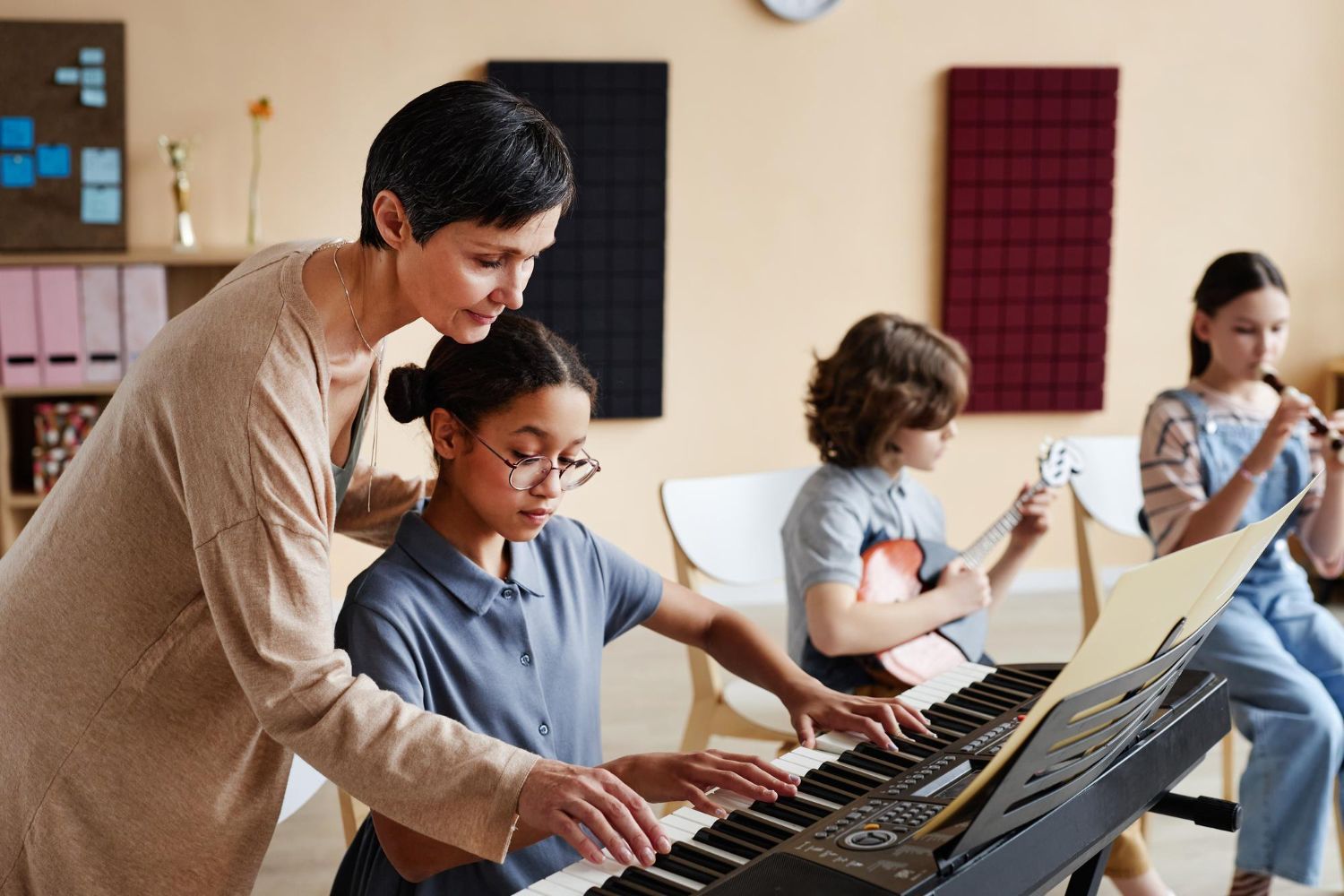
Why Kids Struggle to Focus in Music Class
Many children are naturally curious and full of energy, and music can be a great outlet for all that enthusiasm. When it comes to focus in music class, though, sitting through an entire lesson can be harder than most parents expect. This is something we often notice with kids piano lessons in Frisco. Some younger students arrive excited but start to lose attention after a short while. Others fidget on the piano bench or feel frustrated when something seems tricky. It’s not that they don’t care about music. Most of the time, their minds and bodies just aren’t ready yet to sit still for long stretches. If this sounds familiar, you’re not the only one wondering how to help. Let’s unpack the reasons focus can be so challenging in music class and what can help make those lessons more enjoyable for everyone.
Why Younger Kids Have Trouble Sitting Still
It’s perfectly normal for young children to struggle with focus during music lessons. Their brains are still developing and so is their ability to pay attention for longer periods. Most kids want to move and explore, not just stay seated. After a full school day, sitting quietly in a music room and practicing the same note or rhythm can start to feel slow or tiring.
For many kids, repeating scales or working on a section of music again and again is not what they picture when they think about playing piano. Their energy might show up as wiggling, tapping, or daydreaming, but it’s all part of growing up. That doesn’t mean they aren’t trying. It just means their brains and bodies sometimes have different ideas.
What helps younger kids stay engaged? Give them a few minutes to move around before or during lessons. Mix in activities like clapping, singing along, or games with musical patterns. Letting them try short, familiar pieces lives up to their sense of accomplishment. Teachers at the Music Institute of North Texas often use hands-on tools like colorful note cards and games to help younger students stay interested while learning piano.
How Music Lessons Differ From School Time
Music lessons call for a different kind of focus than other classes. In subjects such as reading or math, kids often know what to expect and see the rules for each task. Music, though, is more about expression and patience. That can be surprising if a child expects music class to be all fun, only to discover there is practice and repetition, too.
Many students walk into piano lessons thinking music will be easy because they love listening or playing by ear. When they run into a song that takes effort to master, staying on task gets tough. It is especially common for kids to get discouraged when they don’t see progress right away.
Practicing the same piece over and over might feel boring unless the child gets why it matters. One strategy is to let them hear a finished piece so they can picture their own journey. When students link their effort with a bigger goal—like performing at a recital or playing their favorite tune—motivation and focus start to grow. The Music Institute of North Texas hosts periodic recitals and fun performance events, which give students clear goals and celebrate their progress.
The Role of Environment and Distractions
Small environmental factors can make or break a child’s attention span. Noise from another room, the chatter of siblings, the sound of a phone in the background—these distractions can quickly pull a student’s mind away from music. At home, it can be even harder to focus. Toys, screens, pets, or nearby family members make it easy for young minds to shift away from practice time.
That’s why a separate music space matters so much. In a studio or dedicated classroom, the environment feels different from the rest of the day. Professional teachers take care to adjust chairs, arrange music stands, and keep lesson spaces organized. Lighting and routine both cue the brain that it’s time to focus.
During kids piano lessons in Frisco, it is routine for teachers to check that students are comfortable at the piano and can see both the keys and the sheet music clearly. This attention to detail helps build routines that tell kids it is time to pay attention. Even at home, carving out a consistent space for the keyboard or piano, separate from play zones, can signal that music time is special.
How a Teacher’s Approach Can Make a Difference
Kids learn in so many different ways, and a teacher who understands this can turn a distracted lesson into an engaging one. Some children focus best with hands-on tools or stories that connect to the music. Others shine when encouraged to move for a minute before returning to the bench. It’s about noticing the little signs—a drifting gaze, tapping feet, or a quick slump in their seat—and shifting the lesson before restlessness takes over.
A great music teacher adapts their style to what each child needs. That might mean teaching a favorite song, using colorful notes on the keys, or switching between listening and playing tasks. Visual tools, rhythm games, and movement breaks all help maintain interest.
The Music Institute of North Texas offers private lessons tailored to each student, creating an experience that meets the child’s needs and allows every student—no matter their starting point—to progress at a comfortable pace. Their teachers work to build “total musicianship,” which means lessons include listening, playing, simple theory, and creativity, so the mind is always active.
How Parents Can Support Focus at Home
Families play an important part in building focus. The way practice is set up at home can shape how kids feel about their lessons. Short, regular practice times—about five or ten minutes each day—are often better than a long session once a week. The main thing is to stay consistent.
Parents can help by celebrating small wins. If a child can play a song today that was tough last week, point it out and let them know it matters. Over time, small bits of praise add up to continued motivation.
Try to avoid bringing pressure or comparing your child’s progress to others. Every student grows at their own speed, and music is all about enjoying each small step. Let the teacher guide skill growth and keep home practice positive and light.
Here are a few ideas that work well for families supporting music practice at home:
- Choose a regular practice time, like right after school
- Set a timer for a short practice session each day
- Keep a sticker chart or check mark calendar for each practice day
- Encourage your child to show off their favorite new song to family members
Helping Kids Stay Engaged Through Music
Focus is a skill that grows along with the student. Sometimes kids will lose their attention, and that is okay. The real progress happens when kids have the right teacher, a space that feels comfortable, and lessons that change as their needs change.
When a student feels safe and supported, music lessons can become something they truly look forward to each week. The piano bench transforms from a spot for sitting still to a place where creativity, confidence, and persistence take center stage. With patience, some flexibility, and a touch of creativity from both home and teacher, every child can find joy in music and see real improvement in their ability to focus.
When a child shows interest in music but struggles to stay focused, it helps to have the right kind of support. At Music Institute of North Texas, our approach to
kids piano lessons in Frisco centers on patience, clear structure, and experience with young learners who do best in a calm, encouraging space where lessons can move at the right pace.
